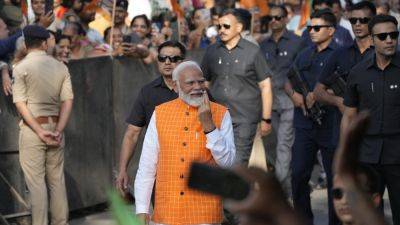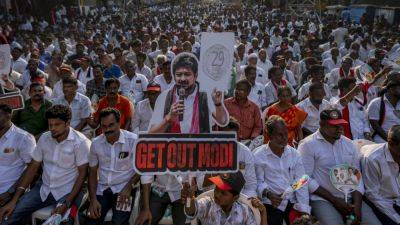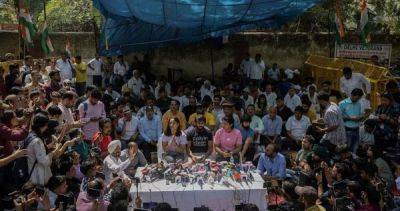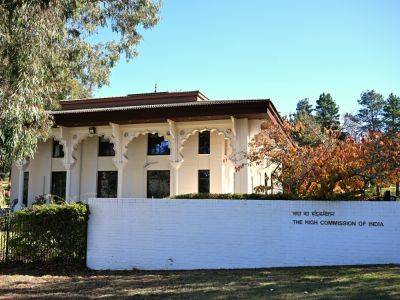Once a fringe Indian ideology, Hindu nationalism is now mainstream, thanks to Modi’s decade in power
AHMEDABAD, India (AP) — Hindu nationalism, once a fringe ideology in India, is now mainstream. Nobody has done more to advance this cause than Prime Minister Narendra Modi, one of India’s most beloved and polarizing political leaders.
And no entity has had more influence on his political philosophy and ambitions than a paramilitary, right-wing group founded nearly a century ago and known as the RSS.
“We never imagined that we would get power in such a way,” said Ambalal Koshti, 76, who says he first brought Modi into the political wing of the Rashtriya Swayamsevak Sangh in the late 1960s in their home state, Gujarat.
Modi was a teenager. Like other young men — and even boys — who joined, he would learn to march in formation, fight, meditate and protect their Hindu homeland.
A few decades earlier, while Mahatma Gandhi preached Hindu-Muslim unity, the RSS advocated for transforming India — by force, if necessary — into a Hindu nation. (A former RSS worker would fire three bullets into Gandhi’s chest in 1948, killing him months after India gained independence.)
Modi’s spiritual and political upbringing from the RSS is the driving force, experts say, in everything he’s done as prime minister over the past 10 years, a period that has seen India become a global power and the world’s fifth-largest economy.
At the same time, his rule has seen brazen attacks against minorities — particularly Muslims — from hate speech to lynchings. India’s democracy, critics say, is faltering as the press, political opponents and courts face growing threats. And Modi has increasingly blurred the line between religion and state.
At 73, Modi is campaigning for a third term in a general election, which starts Friday. He and the ruling Bharatiya Janata







